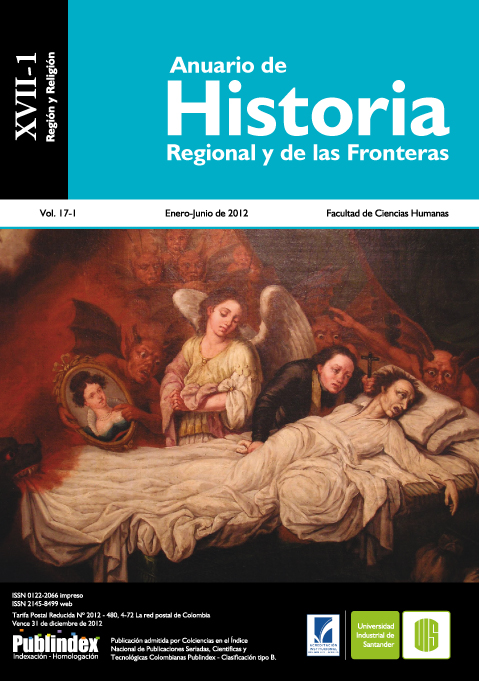Catholic trade unionism in Pamplona (Colombia), a discontinuous and short range project.
Published 2012-08-27
How to Cite
Abstract
This article presents a brief analysis of the results of the confessional trade unionismimplemented by the Catholic Church in the Archdiocese of Pamplona (Norte deSantander) from 1956 to 1961. It will explain why the unionization of Pamplona‘sworkers carried out by the Catholic Social Action Coordination, is understood as alow-impact initiative that yielded paltry results regarding the plans of the EpiscopalConferences of Colombia and their intention to implement a catholic social doctrine inthe country. For this purpose we start by presenting the general aspects of the Church’sresponse to “social question”, the arrival of Catholic Social Action in Latin Americaand its adaptation to Colombian context, in order to show that Pamplona’s Catholictrade union movement was not successful due to the lack of clerical involvement,the poor workers’ interest in Catholic associationism reflected in the reduced numberof unionized active members, the discontinuity of the project due to the instability oftheir coordination and the omission of work in adjoining parishes to the Archdiocese,which were somewhat marginalized in the process.
Keywords: Catholic Church, Catholic Social Action, confessional trade unionism,rechristianization, Catholic social doctrine, Archdiocese of Pamplona.
